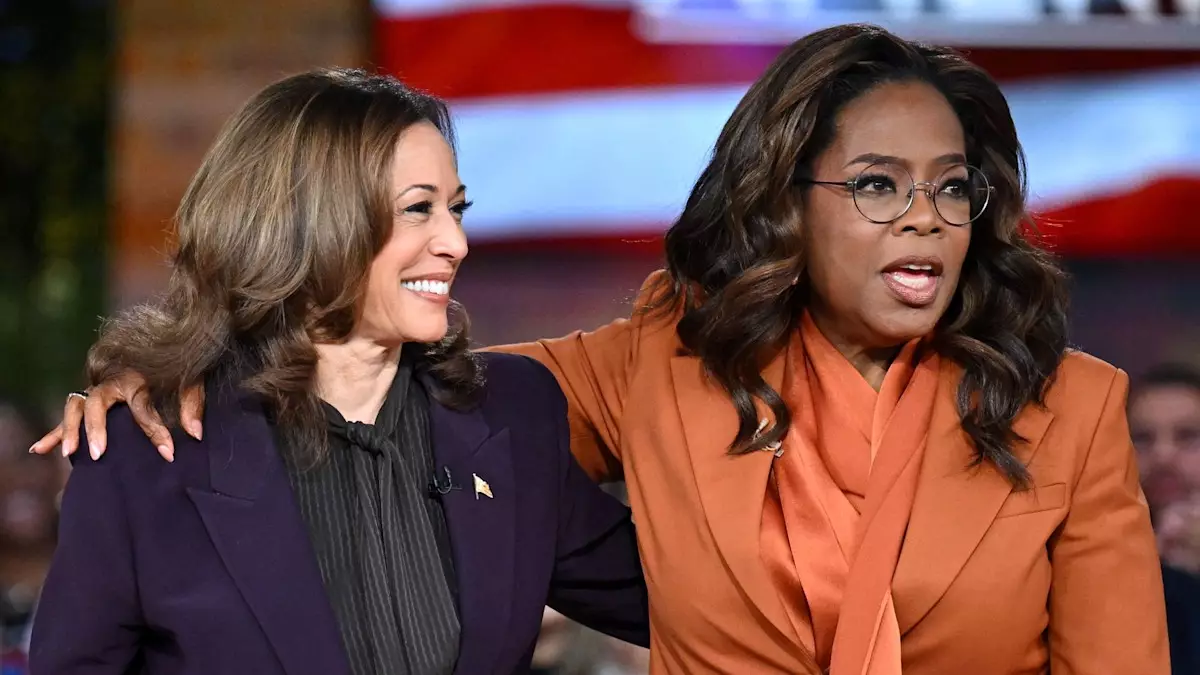In recent political events, the crossover of celebrity influence into the political domain has sparked significant interest and scrutiny. A recent incident involving media mogul Oprah Winfrey and Vice President Kamala Harris illustrates the complexities and misconceptions surrounding celebrity endorsements. Reports circulated suggesting that Winfrey was compensated for her promotional efforts during Harris’s presidential campaign, provoking a strong reaction from Winfrey herself who firmly debunked these rumors. This situation underscores the challenges political figures face in managing perceptions amid the highly charged environment of political campaigns.
The origins of the rumor began after the surprising outcome of the presidential race in which Donald Trump emerged victorious. In the aftermath of Harris’s campaign—a campaign that had been touted as historic—come claims of financial mismanagement, including the extravagant fundraising that totaled over $1 billion yet seemingly ended in substantial debt. Amid these reports, unsubstantiated claims emerged suggesting that Winfrey had received a million-dollar payday for her involvement.
Such allegations are not uncommon during politically charged events, where frustration over outcomes often morphs into speculation about how endorsements are negotiated and whether they come with financial strings attached.
In a decisive move, Oprah Winfrey sought to set the record straight. In a video interview, she emphatically stated, “Not true. I was paid nothing, ever,” effectively flipping the narrative on its head. Winfrey’s insistence on transparency reveals her understanding of the power of her brand and public persona. In today’s climate, the intersection of politics and celebrity dynamics requires diligence in managing narratives, particularly when miscommunication can perpetuate misinformation exponentially.
Winfrey elaborated further on her role in the campaign, explaining that her production company was responsible for logistical arrangements related to her public appearances. Rejecting the implication that she personally profited from supporting Harris, Winfrey clarified that while she did not take a personal fee, the crew responsible for executing the events needed to be compensated. This distinction is critical, as it emphasizes the professional nature of her involvement rather than a transactional relationship.
Additionally, the campaign faced other unverified claims, notably surrounding the financial obligations of Harris’s team. Various sources suggested that staffers were not compensated, sparking outrage and leading to further discourse about the ethical implications of handling campaign finances. Staff members, like Marcus Vusovich, took to social media to counter these claims, affirming their employment status and payment schedules. This incident illustrates how misinformation can spread quickly, especially in politically polarized environments where every detail is scrutinized.
Such a scenario highlights the critical role that social media plays in shaping public perception. It has become a double-edged sword where celebrities and political figures can engage directly with their audience, but it also opens the floodgates for rumors that can easily spiral out of control.
Amid all this turmoil, Kamala Harris faced the daunting task of conceding the election while maintaining the spirit of the fight that her campaign represented. In her speech at Howard University, she acknowledged the disappointment of her supporters but reinforced the broader vision for America’s promise. “The fight for freedom, for opportunity, for fairness, and the dignity of all people,” she stated, clarifying that although she conceded the election, she did not concede the fundamental ideals driving her campaign.
This juxtaposition of campaign ideals and the realities of electoral outcomes serves as a poignant reminder of how political engagement extends beyond just winning votes. It speaks to the need for sustaining momentum surrounding pivotal social issues even when the current political landscape seems unfavorable.
The intrigue surrounding Oprah Winfrey’s support for Kamala Harris serves as a quintessential study in the dynamics of celebrity influence in politics. It highlights the importance of clear communication and transparency in an age where the truth can easily become muddied by rumors. Both figures show that while celebrity endorsements carry weight, they also come with responsibilities, not only to their audience but also to the larger narrative that they represent. As politics evolves, understanding these intricacies will be key for future campaigns and endorsements.

